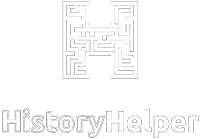
- Details
A lot is said about the pros and cons of hiring a professional genealogist, and there are certainly some pitfalls to avoid when engaging someone to undertake research for you. Ben Hollister takes you through his thoughts on the process.
Why?
Why on earth would you hire a professional genealogist or research service? So many records are available for free, either in hard copy or online, and there are lots of online and face-to-face groups where you can ask questions. And isn’t the fun of it finding things out yourself?
Well, yes. Family History is a great and rewarding hobby, and most of us do it because we love the detective work. But are you aware of how the Congress of Vienna affected recordkeeping in the German states before 1871? Is it likely that Johann Lueck, a carpenter from Schwerin, was in Budapest in 1843? Why is it unlikely that your Amundsen ancestor from 1847 is related to Roald Amundsen? What is the best document to search when trying to find a resident in 1850s Adelaide? How do you prove that Adam Gallasch who landed in Queensland is the same Adam Gallasch seen 5 years later in South Australia?
Professional genealogists have seen many of the same questions in their areas of expertise during their careers and spend much more time (because they can!) in archives and repositories that hold the records you need. Generally, they can find indexes and records faster and make connections and analyses more easily and with more certainty simply due to practice.
If nothing else, an hour with a professional can often help you get your research questions in order and help put a research plan in place.
Professional genealogists may also offer more services than just research. They may be able to help with choosing software, printing charts, and understanding.
Who?
This is a huge area of debate. There is no standard training, qualification or accreditation for professional genealogists across the world. Many countries have systems of accreditation, but these may not be relevant if they are not experienced in the area you are researching.
A good place to start is either:
- using the member directory of a professional association such as the Association of Professional Genealogists or the Australasian Association of Genealogists and Record Agents
- getting a referral from someone you trust
- using the research service from a well-known genealogical society.
Members of professional associations have to sign on to a certain standard in terms of ethics and work practice. It doesn’t guarantee you they are any good (any more than a builder’s licence guarantees a house with no defects) but you at least have somewhere to start a dispute resolution process if there is a problem. The association doesn’t tell you how they will support you in the case of poor performance of one of their members? Go to one that does!
A referral from someone is great as you can also see the sort of work they have done and get an idea of their prices and process.
In Australia, you should also check that they have an ABN and are registered with ASIC. This means that they are taking their business seriously, and you have greater access to legal consumer protections if there is a problem.
While it is not the bottom line, make sure that that you compare costs. Check fees such as travel, processing fees, charges for initial consultations, minimum charge etc so you can best compare different services. Be aware that hourly rates vary dramatically between countries. The upper range of hourly rates in Australia is often the same as the lower range in Europe. You won’t know until you use them how efficient they are, and sometimes the actual cost may be the same as a lower rate indicates a newer or less confident researcher who takes longer.
Where?
There are two choices here:
- Hire someone local to you who will co-ordinate a research project among their network of colleagues. There will probably be a management fee, but you will get consolidated reports, will be dealing with someone in your own language and time zone, and only have to pay one bill.
- Hire someone who is local to the place where the research needs to be done. In this case you manage all of your researchers, deal with language, time zones etc.
How?
If you really want to make the best use of your research dollar, make sure that you are very prepared.
- Have a specific question in mind. Don’t just say “Find out everything about grandma”.
- Make sure you are clear about whether you just want a record pulled with no analysis, transcription (if an image is possible) or translation, or if you need these things. Transcriptions and translations are different and both will take time and are chargeable, but if you don’t read German and German cursive script, for example, then you will need to get it done somewhere.
- Make sure you give a concise but exhaustive research log of what you have already tried. This should stop them from searching for things you already have, and means you have a comeback if they try to charge for information you already supplied. If you don’t give them something you found, be prepared for them to find it and charge you, or even worse, repeat the same negative searches as you. And charge you.
- Have a budget. Make it realistic. A good genealogist will ask you for how much you want to spend and will work to this and your priorities.
- Make sure that everything is in writing. APG members, for example, are obliged to have a contract that clearly spells out their terms and conditions, as well as your rights and obligations.
- Maybe start with a small request, or something you know the answer to, to test them first. Then you could move onto your main goals.
What?
There should be regular communication and this schedule should be in their terms and conditions or in a starting email.
If you have asked for research rather than just for a record to be retrieved, you should receive a detailed report (you will be charged for this time) including the search strategy, the results, both positive and negative, from each search, analysis of the findings, copies of documents, transcriptions and translations wherever possible and as requested, and future research options.
Remember: you are not paying them for results. You are paying them for their time and expertise. You may get no result or results that you are not happy with. This is the nature of genealogical research, but you should get a very clear report of what exactly has been done that allows you to do further research or to request the same or other researcher to undertake further research.
Hopefully this has given you some ideas to ponder over as you work through your family history research. Don't forget that History Helper offers a full research service through its sister company Roots and Branches, as well as a range of other support services for historical researchers.
- Details
Welcome to the new History Helper Website! Hopefully it will allow you see and access our services more easily.

